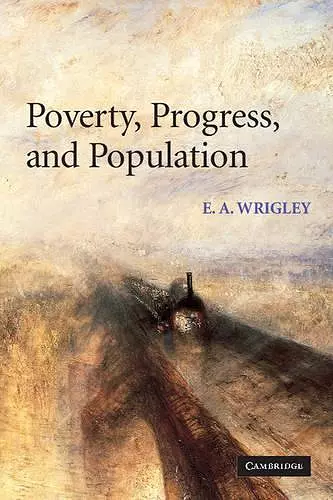Poverty, Progress, and Population
Format:Paperback
Publisher:Cambridge University Press
Published:22nd Jan '04
Currently unavailable, and unfortunately no date known when it will be back
This paperback is available in another edition too:
- Hardback£120.00(9780521822787)

Definitive account of England's transformation through industrial revolution, from one of the nation's leading historians.
Our understanding of what constituted the industrial revolution has changed fundamentally in recent decades. Sir E. A. Wrigley, the leading historian of industrial England, here sets out to expose the inadequacy of what was once the received wisdom and to suggest what he believes should stand in its place.By the early nineteenth century England was very different economically from its continental neighbours. It was wealthier, growing more rapidly, more heavily urbanised, and far less dependent upon agriculture. A generation ago it was normal to attribute these differences to the 'industrial revolution' and to suppose that this was mainly the product of recent change, but no longer. Current estimates suggest only slow growth during the period from 1760–1840. This implies that the economy was much larger and more advanced by 1760 than had previously been supposed and suggests that growth in the preceding century or two must have been decisive in bringing about the 'divergence' of England. Sir E. A. Wrigley, the leading historian of industrial Britain, here examines the issues which arise in this connection from three viewpoints: economic growth; the transformation of the urban-rural balance; and demographic change in the seventeenth and eighteenth centuries.
'Wrigley's reinterpretation of the eighteenth century is of vital importance for anyone wanting to understand how economic ideas were evolving in the period from the English civiil War to the Victorian age.' The Times Higher Education Supplement
'The book is well written and covers a broad range of interesting topics.' Journal of Peace Research
ISBN: 9780521529747
Dimensions: 229mm x 152mm x 27mm
Weight: 700g
478 pages